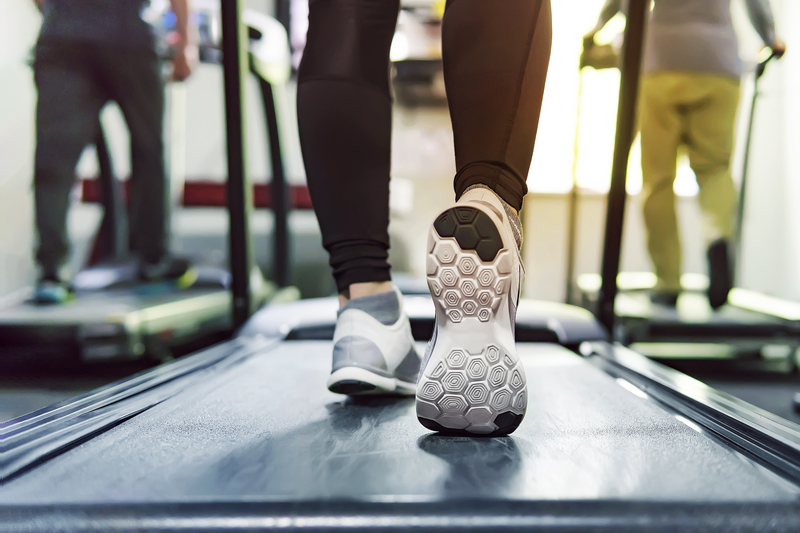- Calls to this hotline are currently being directed to Within Health or Eating Disorder Solutions
- Representatives are standing by 24/7 to help answer your questions
- All calls are confidential and HIPAA compliant
- There is no obligation or cost to call
- Eating Disorder Hope does not receive any commissions or fees dependent upon which provider you select
- Additional treatment providers are located on our directory or samhsa.gov
The Importance of Fitness During Recovery
In today’s fast-paced world, prioritizing our health and well-being is more important than ever. One of the most effective ways to achieve this is by maintaining good fitness and taking care of ourselves both physically and mentally. The benefits of regular exercise and self-care practices extend far beyond just physical health, profoundly impacting our mental and emotional well-being as well.

Physical Well-being
Regular exercise is crucial for maintaining optimal physical health. It helps strengthen the cardiovascular system, improve muscle tone and flexibility, and enhance overall stamina and endurance. Engaging in physical activity also aids in weight management by burning calories and boosting metabolism. Furthermore, exercise can reduce the risk of developing chronic diseases such as heart disease, diabetes, and certain types of cancer. By prioritizing fitness, individuals can enjoy a higher quality of life, with increased energy levels and improved physical functionality [1].
Mental Well-being
Exercise is not only beneficial for the body but also for the mind. Physical activity stimulates the production of endorphins, often referred to as the “feel-good” hormones, which can help alleviate symptoms of stress, anxiety, and depression. Regular exercise has been shown to improve mood, boost self-esteem, and enhance cognitive function. Additionally, engaging in fitness activities can provide a sense of accomplishment and empowerment, leading to greater overall mental well-being [2].

Self-Care Practices
In addition to exercise, incorporating self-care practices into our daily routines is essential for maintaining overall well-being. Self-care involves taking the time to prioritize our physical, emotional, and mental needs. This can include activities such as getting enough sleep, eating a balanced diet, practicing mindfulness and meditation, and engaging in hobbies or activities that bring us joy. By practicing self-care, we can reduce stress, improve our mood, and enhance our overall quality of life.
Fitness During Recovery
For individuals in recovery from addiction or eating disorders, maintaining good fitness and practicing self-care can be particularly beneficial. Addiction and eating disorders often take a toll on both physical and mental health, and incorporating healthy habits into recovery can support healing and promote long-term recovery success.
In addiction recovery, regular exercise can help reduce cravings and withdrawal symptoms, improve mood, and provide a healthy outlet for stress relief. Exercise also promotes the production of neurotransmitters such as dopamine and serotonin, which are often imbalanced in individuals struggling with addiction. Additionally, self-care practices such as mindfulness and meditation can help individuals in recovery stay grounded and cope with cravings and triggers [3].
Similarly, for individuals recovering from eating disorders, focusing on fitness and self-care can support physical and mental healing. Regular exercise can help restore a healthy relationship with food and body image, improve self-esteem, and provide a sense of control and empowerment. Self-care practices such as mindful eating and self-compassion can also be valuable tools in the recovery process, helping individuals cultivate a positive self-image and practice self-acceptance.

Incorporating Fitness and Self-Care into Daily Life
Incorporating fitness and self-care into our daily routines doesn’t have to be complicated or time-consuming. Simple activities such as taking a daily walk, practicing yoga, or spending time in nature can have significant benefits for both physical and mental well-being. Finding activities that we enjoy and that resonate with us personally is key to establishing sustainable habits.
Prioritizing our health and well-being through fitness and self-care is one of the most valuable investments we can make in ourselves. By taking care of our bodies and minds, we can experience improved physical health, enhanced mental well-being, and a greater overall quality of life. For individuals in recovery from addiction or eating disorders, incorporating these practices can support healing, promote long-term recovery, and contribute to a more fulfilling life.
Citations
- Unknown (2023). Benefits of Physical Activity. Centers for Disease Control and Prevention. Retrieved from https://www.cdc.gov/physicalactivity/basics/pa-health/index.htm
- Unknown (2022) .Depression and anxiety: Exercise eases symptoms. Mayo Clinic. Retrieved from https://www.mayoclinic.org/diseases-conditions/depression/in-depth/depression-and-exercise/art-20046495
- Washington, K. (2023). How Exercise Can Help With Addiction Recovery. WebMD. Retrieved from https://www.webmd.com/mental-health/addiction/exercise-help-addiction-recovery
